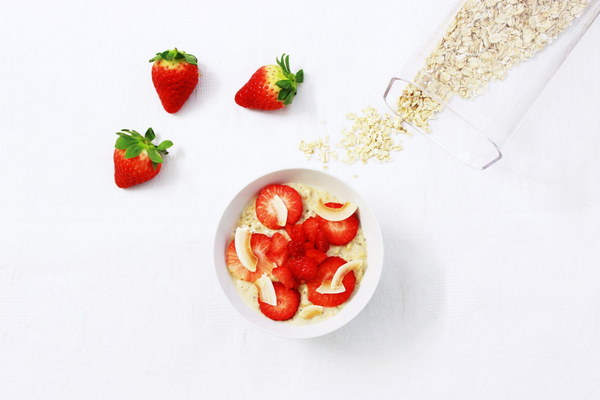Can Drinking Pure Milk Help Nourish Your Kidneys
In the quest for kidney health, many individuals turn to a variety of foods and drinks in the hope of supporting their renal function. One common question that often arises is whether drinking pure milk can be beneficial for kidney health. This article delves into the topic, examining the nutritional content of pure milk and its potential impact on kidney health.
The Nutritional Content of Pure Milk
Pure milk is a highly nutritious beverage that has been a staple in many diets for centuries. It is rich in several essential nutrients that can contribute to overall health, including:
- Protein: Milk is an excellent source of high-quality protein, which is essential for tissue repair and maintenance.
- Calcium: A vital mineral for bone health, calcium is also important for muscle function and nerve transmission.
- Vitamin D: This nutrient helps the body absorb calcium, and milk is often fortified with vitamin D to enhance its benefits.
- Vitamin B12: This vitamin is crucial for maintaining a healthy nervous system and producing red blood cells.
- Potassium: Milk contains potassium, which is important for muscle and nerve function, as well as maintaining a healthy heart rhythm.
The Role of Milk in Kidney Health
While pure milk is packed with nutrients, its impact on kidney health can vary depending on individual circumstances. Here are a few points to consider:
1. Protein Intake: Milk is a good source of protein, which is essential for kidney function. However, excessive protein intake can be detrimental to the kidneys, particularly for individuals with existing kidney conditions. The kidneys are responsible for filtering waste products and excess proteins from the blood, and an overload of protein can strain them.
2. Sodium Content: Some varieties of milk, especially those with added flavors or salt, can be high in sodium. Excess sodium can lead to fluid retention and increased blood pressure, both of which can be harmful to kidney health.
3. Lactose Intolerance: Individuals with lactose intolerance may experience digestive discomfort or other symptoms when consuming milk. While this does not directly affect kidney health, it can limit the consumption of milk and potentially lead to a deficiency in some of its beneficial nutrients.
4. Calcium and Kidney Stones: There is some evidence to suggest that high calcium intake, particularly from dairy sources like milk, may increase the risk of kidney stones. However, this risk is generally considered low for most individuals, and dietary calcium has been shown to have a protective effect on kidney function.
Moderation and Individual Considerations
The key to incorporating milk into a kidney-healthy diet is moderation. Here are some tips:
- Monitor Protein Intake: If you have kidney disease or are at risk for kidney problems, it's important to monitor your protein intake and consult with a healthcare professional or a registered dietitian.

- Choose Low-Sodium Milk: Opt for low-sodium or unsalted varieties to minimize the risk of high blood pressure and fluid retention.
- Consider Fortified Milk: If you're concerned about nutrient deficiencies, choose fortified milk varieties to ensure you're getting adequate vitamin D and B12.
- Lactose Intolerance: If you're lactose intolerant, consider alternatives like lactose-free milk or other dairy products that may be easier on your digestive system.
In conclusion, pure milk can be a part of a kidney-healthy diet when consumed in moderation. Its nutritional benefits can contribute to overall health, but it's important to consider individual circumstances and potential risks. Consulting with a healthcare professional can help you determine the best approach to incorporating milk into your diet for optimal kidney health.









